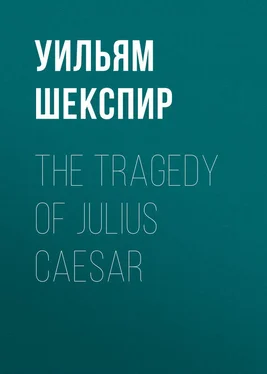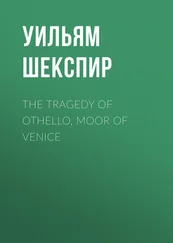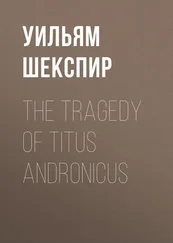Уильям Шекспир - The Tragedy of Julius Caesar
Здесь есть возможность читать онлайн «Уильям Шекспир - The Tragedy of Julius Caesar» — ознакомительный отрывок электронной книги совершенно бесплатно, а после прочтения отрывка купить полную версию. В некоторых случаях можно слушать аудио, скачать через торрент в формате fb2 и присутствует краткое содержание. Жанр: Европейская старинная литература, Драматургия, foreign_dramaturgy, на английском языке. Описание произведения, (предисловие) а так же отзывы посетителей доступны на портале библиотеки ЛибКат.
- Название:The Tragedy of Julius Caesar
- Автор:
- Жанр:
- Год:неизвестен
- ISBN:нет данных
- Рейтинг книги:4 / 5. Голосов: 1
-
Избранное:Добавить в избранное
- Отзывы:
-
Ваша оценка:
- 80
- 1
- 2
- 3
- 4
- 5
The Tragedy of Julius Caesar: краткое содержание, описание и аннотация
Предлагаем к чтению аннотацию, описание, краткое содержание или предисловие (зависит от того, что написал сам автор книги «The Tragedy of Julius Caesar»). Если вы не нашли необходимую информацию о книге — напишите в комментариях, мы постараемся отыскать её.
The Tragedy of Julius Caesar — читать онлайн ознакомительный отрывок
Ниже представлен текст книги, разбитый по страницам. Система сохранения места последней прочитанной страницы, позволяет с удобством читать онлайн бесплатно книгу «The Tragedy of Julius Caesar», без необходимости каждый раз заново искать на чём Вы остановились. Поставьте закладку, и сможете в любой момент перейти на страницу, на которой закончили чтение.
Интервал:
Закладка:
William Shakespeare
The Tragedy of Julius Caesar
JULIUS CAESAR, Roman statesman and general
OCTAVIUS, Triumvir after Caesar's death, later Augustus Caesar, first emperor of Rome
MARK ANTONY, general and friend of Caesar, a Triumvir after his death
LEPIDUS, third member of the Triumvirate
MARCUS BRUTUS, leader of the conspiracy against Caesar
CASSIUS, instigator of the conspiracy
CASCA, conspirator against Caesar
TREBONIUS, " " "
CAIUS LIGARIUS, " " "
DECIUS BRUTUS, " " "
METELLUS CIMBER, " " "
CINNA, " " "
CALPURNIA, wife of Caesar
PORTIA, wife of Brutus
CICERO, senator
POPILIUS, "
POPILIUS LENA, "
FLAVIUS, tribune
MARULLUS, tribune
CATO, supportor of Brutus
LUCILIUS, " " "
TITINIUS, " " "
MESSALA, " " "
VOLUMNIUS, " " "
ARTEMIDORUS, a teacher of rhetoric
CINNA, a poet
VARRO, servant to Brutus
CLITUS, " " "
CLAUDIO, " " "
STRATO, " " "
LUCIUS, " " "
DARDANIUS, " " "
PINDARUS, servant to Cassius
The Ghost of Caesar
A Soothsayer
A Poet
Senators, Citizens, Soldiers, Commoners, Messengers, and Servants
SCENE: Rome, the conspirators' camp near Sardis, and the plains of Philippi
ACT I. SCENE I. Rome. A street
Enter Flavius, Marullus, and certain Commoners.
FLAVIUS. Hence, home, you idle creatures, get you home.
Is this a holiday? What, know you not,
Being mechanical, you ought not walk
Upon a laboring day without the sign
Of your profession? Speak, what trade art thou?
FIRST COMMONER. Why, sir, a carpenter.
MARULLUS. Where is thy leather apron and thy rule?
What dost thou with thy best apparel on?
You, sir, what trade are you?
SECOND COMMONER. Truly, sir, in respect of a fine workman, I am
but, as you would say, a cobbler.
MARULLUS. But what trade art thou? Answer me directly.
SECOND COMMONER. A trade, sir, that, I hope, I may use with a
safe
conscience, which is indeed, sir, a mender of bad soles.
MARULLUS. What trade, thou knave? Thou naughty knave, what
trade?
SECOND COMMONER. Nay, I beseech you, sir, be not out with me;
yet,
if you be out, sir, I can mend you.
MARULLUS. What mean'st thou by that? Mend me, thou saucy
fellow!
SECOND COMMONER. Why, sir, cobble you.
FLAVIUS. Thou art a cobbler, art thou?
SECOND COMMONER. Truly, Sir, all that I live by is with the
awl; I
meddle with no tradesman's matters, nor women's matters, but
with
awl. I am indeed, sir, a surgeon to old shoes; when they are
in
great danger, I recover them. As proper men as ever trod upon
neat's leather have gone upon my handiwork.
FLAVIUS. But wherefore art not in thy shop today?
Why dost thou lead these men about the streets?
SECOND COMMONER. Truly, sir, to wear out their shoes to get
myself
into more work. But indeed, sir, we make holiday to see
Caesar
and to rejoice in his triumph.
MARULLUS. Wherefore rejoice? What conquest brings he home?
What tributaries follow him to Rome
To grace in captive bonds his chariot wheels?
You blocks, you stones, you worse than senseless things!
O you hard hearts, you cruel men of Rome,
Knew you not Pompey? Many a time and oft
Have you climb'd up to walls and battlements,
To towers and windows, yea, to chimney tops,
Your infants in your arms, and there have sat
The livelong day with patient expectation
To see great Pompey pass the streets of Rome.
And when you saw his chariot but appear,
Have you not made an universal shout
That Tiber trembled underneath her banks
To hear the replication of your sounds
Made in her concave shores?
And do you now put on your best attire?
And do you now cull out a holiday?
And do you now strew flowers in his way
That comes in triumph over Pompey's blood?
Be gone!
Run to your houses, fall upon your knees,
Pray to the gods to intermit the plague
That needs must light on this ingratitude.
FLAVIUS. Go, go, good countrymen, and, for this fault,
Assemble all the poor men of your sort,
Draw them to Tiber banks, and weep your tears
Into the channel, till the lowest stream
Do kiss the most exalted shores of all.
See whether their basest metal be not moved;
They vanish tongue-tied in their guiltiness.
Go you down that way towards the Capitol;
This way will I. Disrobe the images
If you do find them deck'd with ceremonies.
MARULLUS. May we do so?
You know it is the feast of Lupercal.
FLAVIUS. It is no matter; let no images
Be hung with Caesar's trophies. I'll about
And drive away the vulgar from the streets;
So do you too, where you perceive them thick.
These growing feathers pluck'd from Caesar's wing
Will make him fly an ordinary pitch,
Who else would soar above the view of men
And keep us all in servile fearfulness. Exeunt.
SCENE II. A public place
Flourish. Enter Caesar; Antony, for the course; Calpurnia, Portia, Decius, Cicero, Brutus, Cassius, and Casca; a great crowd follows, among them a Soothsayer.
CAESAR. Calpurnia!
CASCA. Peace, ho! Caesar speaks.
Music ceases.
CAESAR. Calpurnia!
CALPURNIA. Here, my lord.
CAESAR. Stand you directly in Antonio's way,
When he doth run his course. Antonio!
ANTONY. Caesar, my lord?
CAESAR. Forget not in your speed, Antonio,
To touch Calpurnia, for our elders say
The barren, touched in this holy chase,
Shake off their sterile curse.
ANTONY. I shall remember.
When Caesar says "Do this," it is perform'd.
CAESAR. Set on, and leave no ceremony out. Flourish.
SOOTHSAYER. Caesar!
CAESAR. Ha! Who calls?
CASCA. Bid every noise be still. Peace yet again!
CAESAR. Who is it in the press that calls on me?
I hear a tongue, shriller than all the music,
Cry "Caesar." Speak, Caesar is turn'd to hear.
SOOTHSAYER. Beware the ides of March.
CAESAR. What man is that?
BRUTUS. A soothsayer you beware the ides of March.
CAESAR. Set him before me let me see his face.
CASSIUS. Fellow, come from the throng; look upon Caesar.
CAESAR. What say'st thou to me now? Speak once again.
SOOTHSAYER. Beware the ides of March.
CAESAR. He is a dreamer; let us leave him. Pass.
Sennet. Exeunt all but Brutus and Cassius.
CASSIUS. Will you go see the order of the course?
BRUTUS. Not I.
CASSIUS. I pray you, do.
BRUTUS. I am not gamesome; I do lack some part
Of that quick spirit that is in Antony.
Let me not hinder, Cassius, your desires;
I'll leave you.
CASSIUS. Brutus, I do observe you now of late;
I have not from your eyes that gentleness
And show of love as I was wont to have;
You bear too stubborn and too strange a hand
Over your friend that loves you.
BRUTUS. Cassius,
Be not deceived; if I have veil'd my look,
I turn the trouble of my countenance
Merely upon myself. Vexed I am
Of late with passions of some difference,
Conceptions only proper to myself,
Which give some soil perhaps to my behaviors;
But let not therefore my good friends be grieved-
Among which number, Cassius, be you one-
Nor construe any further my neglect
Than that poor Brutus with himself at war
Forgets the shows of love to other men.
CASSIUS. Then, Brutus, I have much mistook your passion,
By means whereof this breast of mine hath buried
Thoughts of great value, worthy cogitations.
Tell me, good Brutus, can you see your face?
BRUTUS. No, Cassius, for the eye sees not itself
But by reflection, by some other things.
Интервал:
Закладка:
Похожие книги на «The Tragedy of Julius Caesar»
Представляем Вашему вниманию похожие книги на «The Tragedy of Julius Caesar» списком для выбора. Мы отобрали схожую по названию и смыслу литературу в надежде предоставить читателям больше вариантов отыскать новые, интересные, ещё непрочитанные произведения.
Обсуждение, отзывы о книге «The Tragedy of Julius Caesar» и просто собственные мнения читателей. Оставьте ваши комментарии, напишите, что Вы думаете о произведении, его смысле или главных героях. Укажите что конкретно понравилось, а что нет, и почему Вы так считаете.












